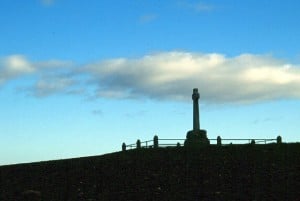
On this day in history, 9th September 1513, the Battle of Flodden between England and Scotland took place near the village of Branxton in Northumberland, Northern England.
You can read more about this battle in my article “The Battle of Flodden 1513”, but it was a triumph for Henry VIII’s first wife, Catherine of Aragon, as it took place while Henry was in France and Catherine was regent. She wrote to Henry VIII of the victory:-
“This battle hath been to your grace and all your realm the greatest honour that could be, and more than ye should win all the crown of France. Your grace shall see how I can keep my promise, sending you for your banners a king’s coat.”
At least she only sent him James IV’s coat, she had originally wanted to send the King of Scotland’s body!
Notes and Sources
- “Catherine of Aragon: Henry’s Spanish Queen”, Giles Tremlett